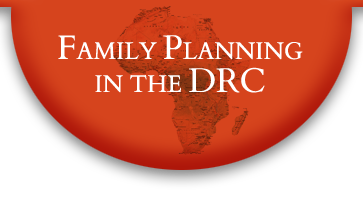Financing
Financing refers to the sources of funding that pay for family planning services in a given country. Three primary sources in the DRC are international donors, the government of DRC, and the users of the services (through user fees).
International donors provide the majority of funding for contraceptive procurement, the Demographic and Health Survey (DHS), and the design/implementation of new programs (often by supporting international or national partner organizations to carry out a specific project). The government of DRC provides in-kind funding for the salary of government workers in FP programs/clinics. User fees generally support costs incurred by the specific facility they are using. Out-of-pocket payments account for a major part of health expenditure in DRC.

Pricing for Visits
The total expenditure for reproductive health in DRC (as of 2008) was estimated to be about $132,240,531, or $8.37 per woman of childbearing age. As seen in the figure below, the main source of funding for reproductive health is households (68%), followed by international cooperation (including donors and international NGOs) (32%). The contribution of households far exceeds the cumulative contribution of the central and provincial governments (0.1%).
Family planning is a very small part of the reproductive health budget which includes the following:
- Antenatal and post natal care
- Micronutrient supplementation for pregnant woman
- Delivery
- Female victims of sexual violence.
- Hospitalization (for reproductive health care)
- Pharmaceutical products (under reproductive health)
- Oral contraceptives, condoms, devices intrauterine and family planning services
Reproductive Health Financing Source, 2008
International NGOs = 1%
Donors = 31%
Household = 68%
Source: Health Systems 20/20 Project. May 2011. National Health Accounts 2008-2009 Executive Summary. Bethesda, MD: Health Systems 20/20 project, Abt Associates Inc.
In 2008, over $7.5M was spent on family planning services in the DRC by donors, households, international NGOs, and the provincial governments. The population, followed by donors, paid the vast majority of the expenditures on their reproductive health services.
